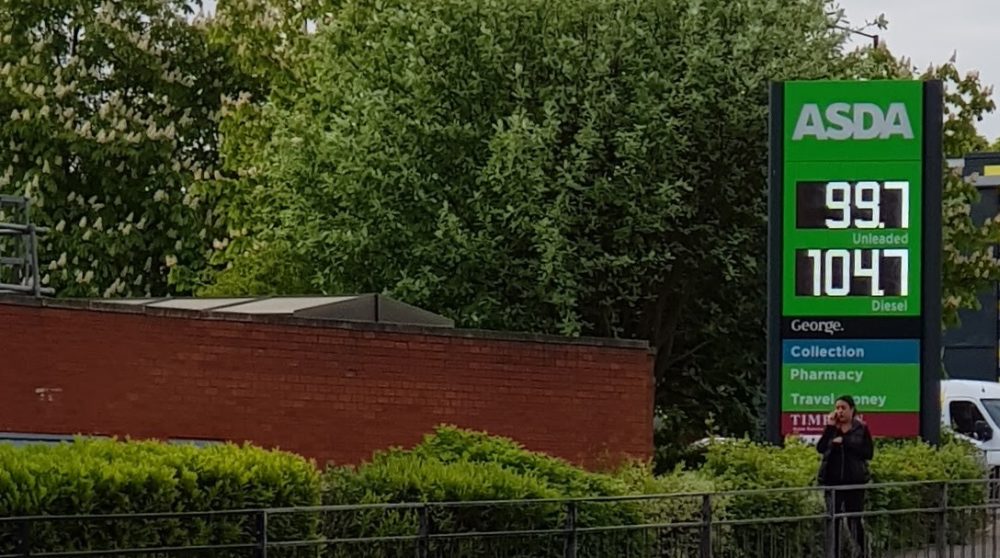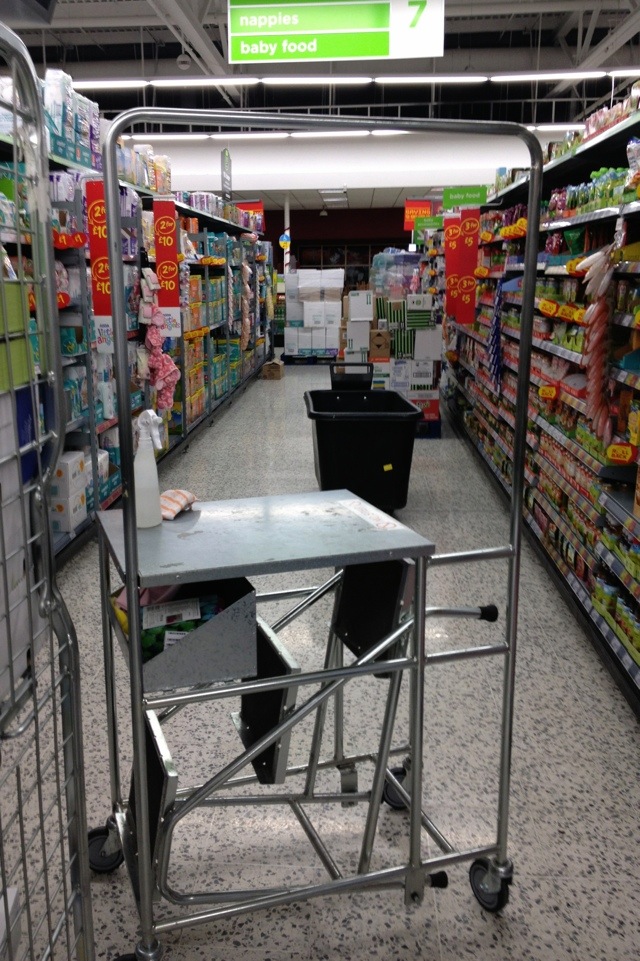31 things I learned in May 2020
1: We’re actually decent people in a crisis – and stories claiming otherwise do harm.
2: A monk’s cowl is “meant to be impractical – you can’t run in it for instance. It slows you down and you can’t do much in the way of work as a result of the long sleeves.”
3: “While the rest of us headed into lockdown worrying about whether we had enough toilet roll and ketchup, the super-rich were desperately trying to recruit live-in staff.” I’m not usually partial to cheap reverse snobbery, but that article had some zinging lines in it.
4: Paul Collier’s critique in The TLS of the UK Government response to covid-19 is the best I’ve read to date (though admittedly I’m trying to avoid reading too much on covid-19 outside of work). I don’t agree with the detail of all of his conclusions, but I think he brings important issues to the surface.
5: “There are many modern thinkers who emphasise the individual’s dependency upon society. It is, on the contrary, only the cultivation of interior solitude, among crowded lives, that makes society endurable.” So said John Cowper Powys, apparently. I tend to agree.
6: “In Europe, bunks on a night train have traditionally been set at ninety degrees to the direction of travel, like the teeth of a comb. In America, the custom was to place them lengthways, so that your body, when horizontal, slotted into the train like a bullet in the breach of a rifle.” I could have lived my entire life without this delightful bit of trivia ever coming to my attention.
7: “The hope is that almost all of us will download the app, that we will be diligent about using it if we develop symptoms, that the detection of identifiers will be reliable, that the subsequent risk calculation will be more or less accurate, and that we will, by and large, self-isolate if the app tells us to. Crucially, the strategy also requires easy access to tests so people can be rapidly alerted if a contact who had symptoms turns out not to have had the disease.” I’m a covid-19 app sceptic: I don’t think the uptake will be anywhere near 80% of smartphones (as is hoped) and nor do I think that there will be comparable compliance with isolation advice given by app and that given in a human conversation. Twelve months from now, when this post is published and the app has proven to be a rip-roaring success, you can comment and tell me what a fool I am for posting such silly predictions.
8: Moving a Bank Holiday to a Friday makes it more difficult to know what day it is. Lockdown and the consequent intense but irregular working pattern already made it hard enough for me.
9: The details in The Economist‘s cover images sometimes pass me by.
11: Gillian Tett’s observation that “Americans are wearily used to the idea that 40,000 die each year from guns, and many accept this as the price of freedom” helped me see grim fatalism as one response to the lifting of the covid lockdown: the polar opposite of the safety first, fear-driven response that many pundits predict will dominate.
12: “Britain is so preoccupied by the virus that it is devoting far too little attention to its Brexit negotiations, increasing the chances that an on-time Brexit will also be a bitter Brexit.” I’m fairly confident that, despite current bluster, the Government will end up asking for an extension of the transition period. (This post is rapidly turning into “31 predictions from May 2020” rather than 31 lessons…)
13: Will Self’s article on the mechanics of freelance journalism, published in the reputedly low-paying TLS, opened my eyes to the basic realities of that profession.
14: My local petrol station is now charging less than £1/litre.

16: Uncertainty about the safety and effectiveness of contact tracing apps is growing. The Economist has a published a leader on the topic: “They are an attractive idea. Yet contact-tracing apps are also an untested medical invention that will be introduced without the sort of safeguards that new drugs are subjected to. Inaccurate information can mislead health officials and citizens in ways that can be as harmful as any failed drug. Governments should proceed with care.”
17: “The most important breakthroughs in medical interventions – antibiotics, insulin, the polio vaccine – were developed in social and financial contexts that were completely unlike the context of pharmaceutical profit today. Those breakthroughs were indeed radically effective, unlike most of the blockbusters today.” This is obvious when you think about it, but I’ve never really thought about it before.
18: Multi-person iron lungs existed.
19: Chloe Wilson, who I’ve never come across before, seems to be quite a writer.
20: Cereal taught me the Korean idiom “when tigers used to smoke,” meaning a very long time ago. And also the lovely saying “deep sincerity can make grass grow on stone.”
21: Vitamin String Quartet covered the whole of Daft Punk’s Random Access Memories album and somehow this news has passed me by for the best part of four years, even though I like Vitamin String Quartet and love Random Access Memories.
22: “A local leader characterises PHE’s response to the crisis as ‘carry on covid.'” It seems that even The Economist has now concluded that Public Health England is “unlikely to survive the crisis.”
23: This video introduced me to several new terms unique to the world of antiquarian book repair (though Slightly Foxed taught me the meaning of ‘slightly foxed’ some years ago!)
24: Itsu’s katsu rice noodles are lovely, even if they are basically a posh pot noodle.
25: Going for a drive to test one’s eyesight is, according to the government, an acceptable reason for deviating from “stay at home” advice.
26: How different artists approached drawing the SARS-CoV-2 virus.
27: Dr Bonnie Henry has had some shoes made in her honour. And they sold out quickly.
28: A month ago, I don’t think I could have confidently defined ‘pangram’. Now, I’m coming across them everywhere: there’s been a running feature in The Times diary column, they feature in Exciting Times by Naoise Dolan which I’m currently reading, and The Browser recently recommended an article about them. My current favourite is ‘amazingly few discotheques provide jukeboxes’.
29: The Twentieth Century Society made me aware that tax incentives promote new construction over refurbishment, which is part of the reason why perfectly sound buildings are often demolished rather than repurposed.
30: It’s been lovely to have a day off and go for a walk with Wendy. COVID-19 work has run us both ragged recently. I’ve also had my first takeaway coffee in several months.
31: According to anonymous sources talking to The Sunday Times, “Boris has always been clear that he doesn’t ever say sorry,” “these stories about Boris being fed up with the job are all true” and “the chances of Boris leading us into the next election have fallen massively.”
This post was filed under: Posts delayed by 12 months, Things I've learned, Aeon Magazine, Anthony Lane, Asda, Bagehot, Bank Holiday, BBC News, Bonnie Henry, Cereal magazine, Chloe Wilson, Covid-19, Daft Punk, Dominic Cummings, Evening Standard, Ewan Somerville, Financial Times, George Parker, Gillian Tett, Granta, Hilary Rose, Itsu, Jacob Stegenga, John Cowper Powys, Katy Clifton, Laura Gardner, Leo Kelion, Michael Casey, Naoise Dolan, Pangrams, Patrick Cockburn, Paul Collier, Paul Taylor, Petrol Prices, Predictions, Rebekah Frumkin, Sebastian Payne, Slightly Foxed, Spotify, Susannah Kemple, The Browser, The Economist, The LRB, The New Yorker, The Paris Review, The Sunday Times, The Times, The TLS, The Twentieth Century Society, Tim Harford, Tim Shipman, Vestoj, Vitamin String Quartet, Will Self, Zanny Minton Beddoes.




